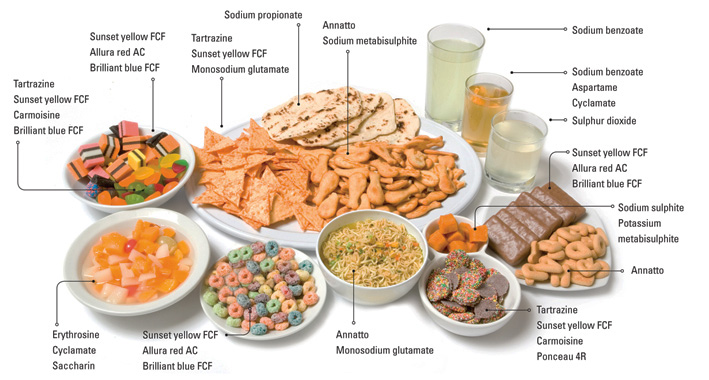If the mandate of the FDA includes protecting public health by assuring the safety of the food supply, why is the organization allowing a staggering amount of additives to adulterate our food? Many of these additives have dire consequences to the health this agency is supposed to protect.
Since the advent of commercially processed foods in the 1950’s, many non-food substances have come into common usage to preserve and enhance the taste and appearance of products made with cheap ingredients. Increasingly, these additives such as indigestible gums have been used to replace real food ingredients. The use of food additives has allowed food producers to make higher profits at the expense of public health.
Today, thousands of different food additives are allowed by the FDA, although a 2013 study found that almost 80% of them lack the relevant information needed to estimate the amount that consumers can safely eat.
In the FDA’s own database, 93% of food additives lack reproductive or developmental toxicity data. Of the totality of FDA-regulated additives, both directly and indirectly allowed in food, almost two-thirds don’t have publicly available feeding data. The report concluded that in the absence of toxicology data on the majority of chemicals added to food, their safety in humans may be questioned.
To explain the FDA’s negligence, some cite a decades-old loophole that allows companies to confer GRAS (generally recognized as safe) status to the additives they plan to use, without any FDA oversight. But if the FDA were genuinely interested in protecting the public, it would have moved long ago to close that loophole.
The same apologists say companies regularly introduce new additives without ever informing the FDA, so this regulatory body just doesn’t know about them. Yet the FDA has been able to trackdown small raw milk producers half way across the country to put them out of business, send the FBI to raid a cancer center using natural treatments in Tulsa treatment, and put a small company out of business for making elderberry juice concentrate. Clearly the FDA has its ear to the ground.

